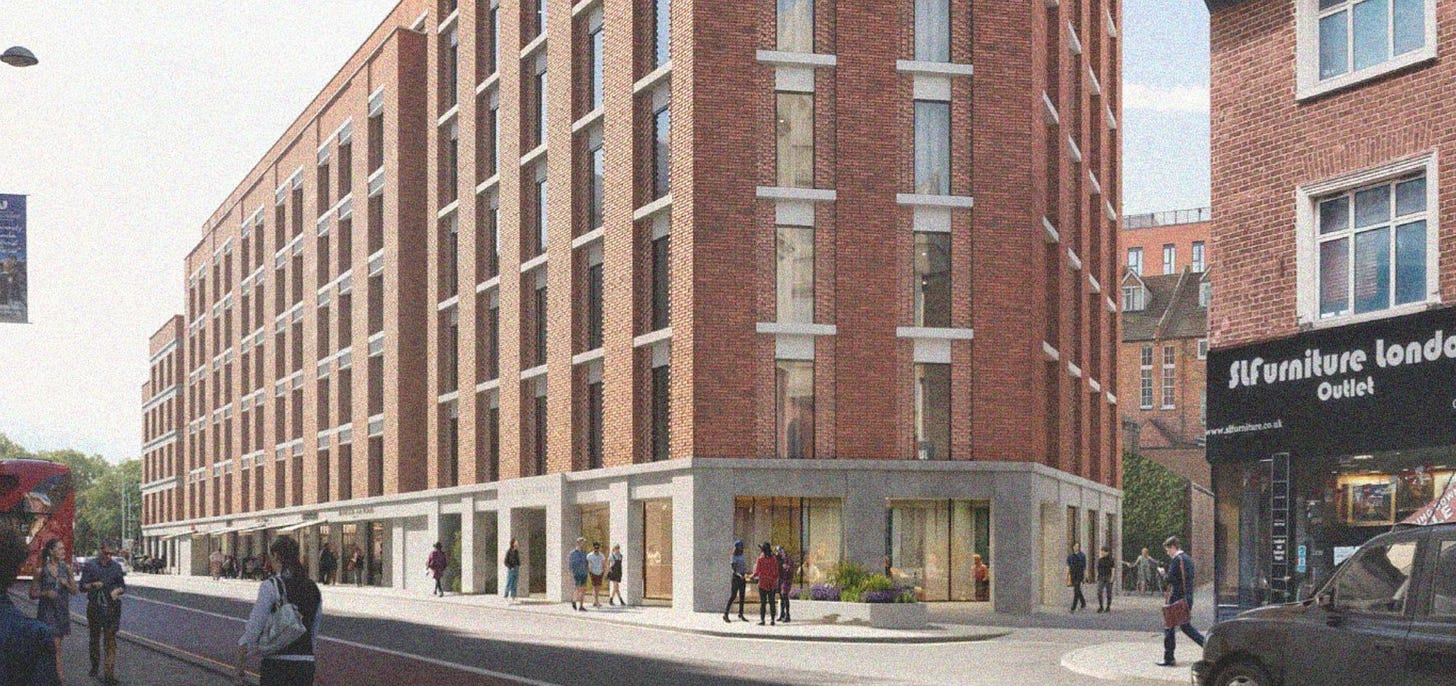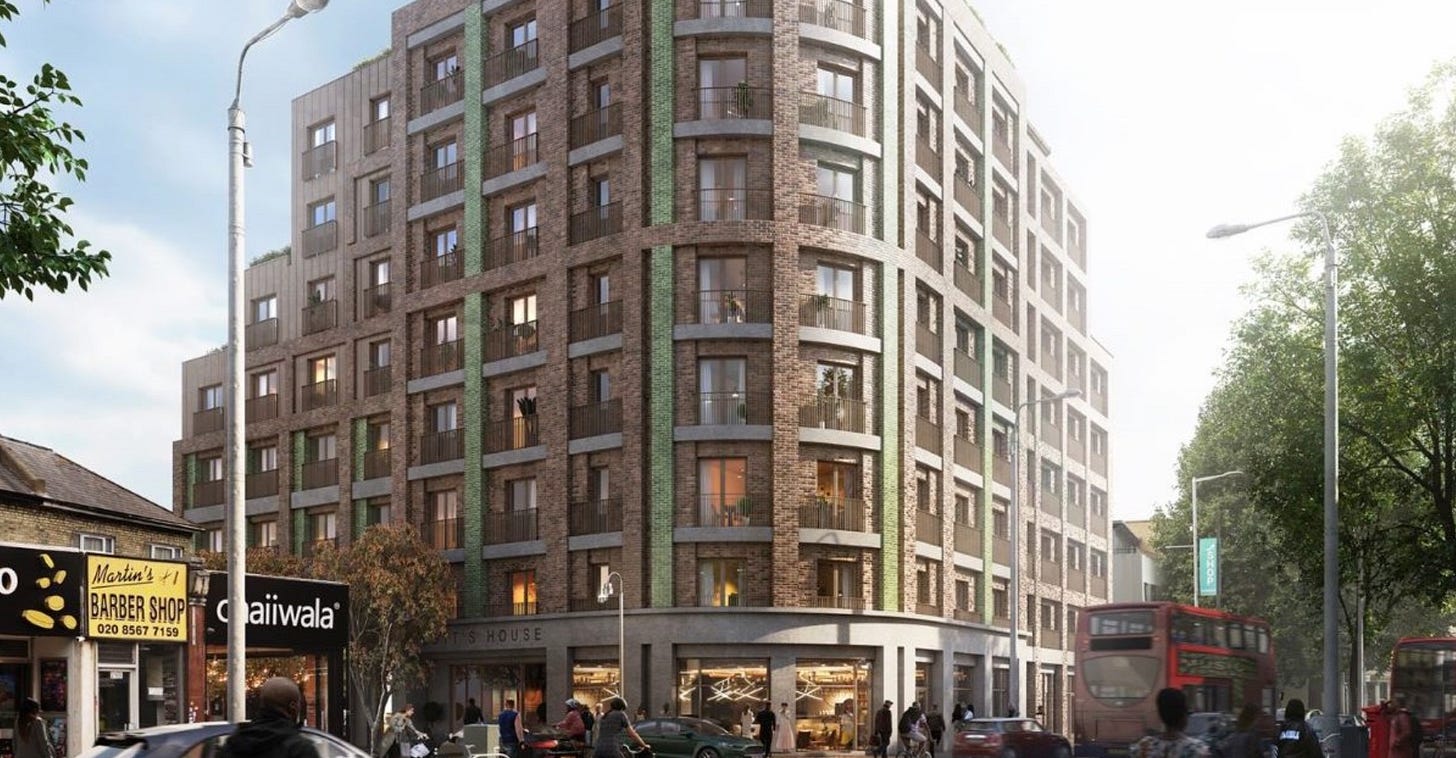Town centres to be transformed by influx of thousands of single residents
Ealing and Hounslow have approved plans for major projects which provide “co-living” accommodation for single people
The phrase co-living is as likely to confuse readers as it is to enlighten them but it is a new property development concept which is going to have a massive impact on parts of Ealing and Hounslow.
Co-living projects exist somewhere between a student hall of residence and a hotel. They are designed for single people who have their own living space but will share amenities such as kitchens, gyms, lounges and studies. They seem to be a residential equivalent of We Work and Work Space offices.
The Apiary has just opened with a discreet entrance between NatWest Bank and Monty’s restaurant in Ealing Broadway. It has 81 co-living rooms and it offers the “experience a one-of-a-kind co-living adventure where you’ll find a delightful blend of chic living spaces, cozy work nooks, and an undeniable sense of community.”
It will be far from a “one-of a kind” adventure when development plans being scrutinised and approved by Ealing Council come to fruition. Work is expected to start soon on Sandringham Mews on the west side of High Street Ealing, opposite Wagamama, which will have around 318 co-living rooms, including 14 wheelchair accessible units and 10 designated for care leavers.

Developers have also applied to convert Craven House, Uxbridge Road to 75 self-contained co-living units and Kosy Living are promoting a 100-unit co-living project somewhere in Ealing. British Land, which has planning permission to build a 21-storey building opposite Ealing Broadway station and stretching to the building that contains TK Maxx and Morrisons, is believed to be examining switching its main use from offices to co-living units.
It’s a fascinating prospect which could transform Ealing Broadway and its economic fortunes. Shops, bars and restaurants would have a new clientele of thousands of young working people. Ealing could be transformed from a sleepy suburban town centre into a west London version of Shoreditch or Dalston.
But it’s not just Ealing Broadway. Plans have been approved to build 134 co-living units on the Kwik Fit site on Broadway, West Ealing and 462 at the Castle Co-Living Tower in North Acton. In Hounslow, developers are seeking approval for 394 co-living units in Chiswick Tower and developers are also considering co-living spaces in the former GSK headquarters on the Great Western Road.
Julian Gallant, a councillor for Ealing Broadway and a member of the planning committee, said he voted for some but not all of the projects. “You can see the attraction of co-living projects. Ealing is a beautiful place to live. We have great amenities and fantastic transport links. It will bring more business and money into the borough.
“But, ideally we need a greater mix of ages and accommodation types to ensure a more balanced population,” he said.
There is even more residential development in the pipeline for Ealing Broadway. Developers are looking to convert the Exchange building at 52 Uxbridge Road into a residence for 500 students and International House, the office building that forms part of the Ealing Broadway Centre into 148 flats.
There is a major concentration of co-living projects in west London but there are major projects elsewhere in the country. In Manchester, the Union is 36-storey tower with more than 800 co-living units while plans have been approved for a 150 unit development in former university buildings in Birmingham
Co-living offers investors an opportunity to profit from the UK’s housing crisis and the redundancy of many office projects in the wake of COVID-19 and the embrace of hybrid working in many business sectors. Property specialists Knight Frank believe that co-living is not just a passing trend but a sustainable and scalable solution to the UK's housing challenges. “It represents a unique opportunity for investors to capitalise on an emerging asset class that not only meets the needs of a changing tenant base but also offers the potential for significant financial returns. As the sector matures, those who move early to understand and invest in co-living will likely reap the benefits of this dynamic and evolving market. It's a critical area for investors to watch and engage with in the coming years,” it says in a report.
Co-living may be an interesting response to the UK’s unique housing problems but it is a concept that has been tested in the Soviet Union and France. The Soviet Commissariat of Finance (Narcomfin) built a residence for its staff in Moscow with shared communal facilities to encourage a more socialist way of life. In France, authorities built “foyers” to house migrant workers from the countryside and later north Africa in French cities. The foyer movement was later mirrored in the UK to create transitional housing for young people aged from 16-25.
There is nothing obviously socialistic about the current iteration of co-living projects. The cheapest room on offer at the Apiary is £1,288 for a 15 square metre room for people who satisfy certain Ealing residence criteria. For others, prices for a studio start at £1,775 including bills but rise to £2,300 for a large studio.
Co-living is an investment opportunity and a demographic experiment. It is not certain when all these projects will be completed but it is certain that places like Ealing Broadway will look and feel radically different in ten years.




